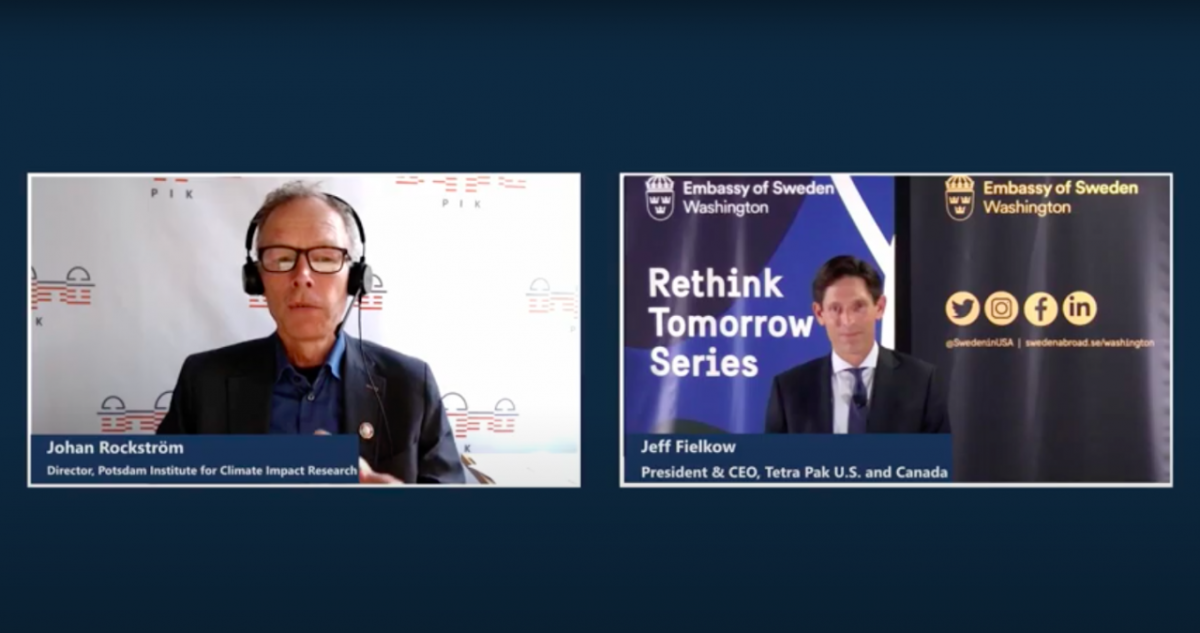How Tetra Pak Is Using Innovation to Transition Towards a Low Carbon Circular Economy

Tetra Pak U.S. and Canada President and CEO Jeff Fielkow recently joined government officials and opinion leaders from Sweden and the U.S. at an event titled Rethink Tomorrow: Using Innovation to Transition Towards A Low Carbon Circular Economy, aimed towards inspiring U.S. climate action. This virtual symposium discussed how enterprise and innovation can be used to transition towards a low-carbon circular economy.
In his remarks, Fielkow highlighted the importance of innovation and cross-industry collaboration when pursuing a sustainable future. The speed of innovative change needed to support the transition to a true low-carbon circular economy is only going to increase, and fully developing the tools needed to make the jump will require outreach and cooperation.
"It takes developing products that haven't been developed yet, and it means a strong focus and strong level of collaboration with other like-minded companies, both private and public, to ensure that we can innovate at a rapid pace," Fielkow said.
When discussing how to engage consumers Fielkow pointed to Tetra Pak's work to educate consumers about the lifecycle of Tetra Pak products and how they contribute to a low-carbon circular economy. He also emphasized his belief that most consumers would make the decision to engage in circular practices, like recycling, if they had the right information and access to collection. Society needs to do more, he said, to support the transition to a low-carbon lifestyle for consumers.
"It’s all about making sure that cities have the right recycling infrastructure, the right bins at home, the right level of pick-ups, and also the right level of partnerships with their recyclers to increase what can go in the bin for reuse." Fielkow said.

